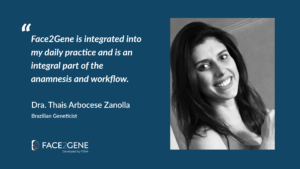Dr. Aime Lumaka, a distinguished geneticist from the Democratic Republic of Congo, is at the forefront of advancing genetic research across Africa. As a pivotal figure in the Deciphering Developmental Disorders in Africa (DDD-Africa) initiative and the Principal Investigator of the African Rare Diseases Initiative (ARDI), Dr Lumaka is leading efforts to evaluate clinical exome sequencing in African settings. In this exclusive interview, he shares insights on the transformative impact of increasing African representation in genetic research, key breakthroughs in his work, and his vision for the future of phenotyping and genetics in Africa.
Dr. Lumaka underscores the critical impact of underrepresentation in genetic studies on the ability to classify variants. “The lack of representation is a major issue. It prevents us from properly classifying certain variants, resulting in a lower diagnostic yield in our population compared to Europeans,” he explains. While many genetic variants in European populations are well-characterized, African populations face a significant data gap. This scarcity hampers the classification of novel variants and limits the ability to upgrade clinical diagnoses due to insufficient evidence.
Representation also plays a crucial role in clinical training. “If we had more faces from our community in medical literature, these patients could serve as a vital training resource for us and our students,” Dr. Lumaka notes. Representation in the literature, he emphasizes, enables clinicians to better recognize syndromes and improve diagnostic accuracy within their communities.
From a phenotyping perspective, he points out the importance of visual data. “The more African faces we have in the medical literature, the better we can identify critical phenotypes specific to our population. This representation not only aids in clinical diagnosis but also helps narrow down core phenotypes that are universally present in specific syndromes.”
Beyond equitable healthcare, increasing African genetic data enriches scientific understanding. “The more African data we have in the public domain, the better we can characterize gene functions and disease mechanisms,” Dr. Lumaka says. Integrating diverse data also helps identify shared disease phenotypes, bridging gaps between African and European presentations.
Dr. Lumaka’s research team focuses on developmental disorders, employing innovative approaches alongside traditional postnatal genetics. “We primarily see paediatric patients referred by neuro-paediatricians and decide who is likely to benefit from genetic sequencing,” he shares. However, they are now expanding into new areas, such as unique phenotyping projects and secondary findings research.
A notable breakthrough in their work involves secondary findings—unexpected genetic results unrelated to the primary diagnostic question. “We are collaborating with colleagues across Africa to deepen our understanding of secondary findings and develop context-specific guidelines,” Dr. Lumaka reveals. This initiative aims to bridge knowledge gaps and establish tailored standards for African populations.

While optimistic, Dr. Lumaka remains mindful of the challenges ahead. “Phenotyping has traditionally been the first step in selecting tests and reviewing variants,” he notes. However, as broad sequencing becomes more accessible, the reliance on phenotyping as a diagnostic tool is diminishing. “This shift introduces challenges, especially for genes without distinct phenotypic markers, making them harder for clinicians to interpret.” He also highlights the complexities of diagnosing patients with multiple developmental disorders—a scenario more common in populations with higher rates of consanguinity. “Determining whether a patient has two distinct diseases is a critical question we must address,” he says.
Despite these hurdles, Dr. Lumaka sees a promising future driven by computational advancements and artificial intelligence. “AI and computational tools hold great potential, though the journey ahead is fraught with challenges,” he acknowledges. Overcoming these obstacles will require innovative strategies, cross-continental collaboration, and sustained investment in research and technology.
Dr. Aime Lumaka’s work exemplifies the transformative potential of genetic research tailored to underrepresented populations. By increasing African representation in genomic studies, fostering breakthroughs in phenotyping, and embracing cutting-edge technologies, he envisions a future where precision medicine becomes a reality for all. While the path ahead is filled with challenges, his dedication and vision offer hope for a more equitable and informed healthcare landscape in Africa.
Explore Dr. Aimee Lumaka’s latest research on the application of Face2Gene in African populations. This study evaluates the tool’s performance in recognition of the fragile X syndrome gestalt in Congolese subjects. Read the full study here: https://www.sciencedirect.com/science/article/abs/pii/S1769721223001258?via%3Dihub



